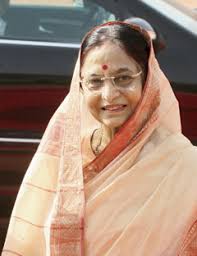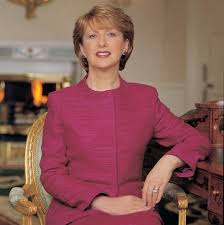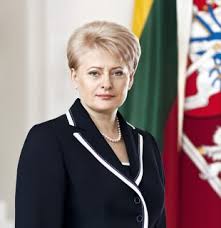A Celebration of Women
celebrates
in Honor of G8 & the G20 Summit…
is taking this time to share with Our Women some interesting figures about the true participation , in Our World, of Women Leaders, some on their way to Canada this week!
It is stated that on a Global Count, the Percentage of Women Presidents in 2010 is only 8% .
Women and their Countries
Female Leadership – 2010
Cristina Fernández de Kirchner
Argentina
Cristina Elizabet Fernández de Kirchner born February 19, 1953), commonly known as Cristina Fernández or Cristina Kirchner, is the current President of Argentina. A member of the Justicialist Party, she was a Senator for Buenos Aires Province before taking office. She is the wife of former President of Argentina Néstor Kirchner, and acted as First Lady during his term.
In the October 2007 general election, Fernández ran for the presidency of Argentina, representing the ruling Front for Victory party. She won with 45.3% of the vote, a 22% lead over her nearest rival. This was the widest margin obtained by a candidate since civil rule was reinstalled in 1983, and avoided the need for a runoff election. She is Argentina’s first elected female President, and the second female President ever to serve (after Isabel Martinez de Perón, 1974–1976).
Borjana Kristo
The Federation
of Bosnia

Borjana Krišto (born August 13, 1961 in Livno, SR Bosnia and Herzegovina, Yugoslavia) is a Bosnian Croat politician, affiliated with the Croatian Democratic Union of Bosnia and Herzegovina. She is the incumbent president of the Federation of Bosnia and Herzegovina – one of two political entities to compose Bosnia and Herzegovina – since February 22, 2007. She is also the first woman to hold the position.
Laura Chinchilla
Costa Rica

Laura Chinchilla Miranda (born March 28, 1959) is a Costa Rican politician and first female President-elect of Costa Rica. She was one of Óscar Arias’s two Vice-Presidents and his administration’s Minister of Justice. She was the governing PLN candidate for President in the 2010 general election, where she won with 46.76% of the vote.
Tarja Halonen
Finland
Tarja Kaarina Halonen; born 24 December 1943) is the 11th and current President of Finland. The first female to hold the office, Halonen had previously been a member of the parliament from 1979 to 2000 when she resigned after her election to the presidency. In addition to her political career she had a long and extensive career in trade unions and different non-governmental organizations.
Angela Merkel
Germany
Angela Dorothea Merkel née Kasner, born 17 July 1954) is the current Chancellor of Germany. Merkel, elected to the German Parliament from Mecklenburg-Vorpommern, has been the chairwoman of the Christian Democratic Union (CDU) since 10 April 2000, and Chairwoman of the CDU-CSU (Christian Social Union) parliamentary coalition from 2002 to 2005.
Pratibha Patil
India
Pratibha Devisingh Patil (born 19 December 1934) is the 12th and current President of the Republic of India and first woman to hold the office. She was sworn in as President of India on 25 July 2007, succeeding Dr. A.P.J. Abdul Kalam. Pratibha Patil, a member of the Indian National Congress (INC), was nominated by the ruling United Progressive Alliance and Indian Left. She won the presidential election held on 19 July 2007 defeating her nearest rival Bhairon Singh Shekhawat.
Mary McAleese
Ireland
Mary Patricia McAleese (Irish: Máire Pádraigín Bean Mhic Ghiolla Íosa; born 27 June 1951) is the eighth and current President of Ireland. Prior to becoming president she was a barrister, journalist and academic. McAleese is Ireland’s second female president and the world’s first woman to succeed another woman as an elected head of state. She was first elected president in 1997 and won a second term, without a contest, in 2004. Her birth in Belfast means she is the first President to have come from Northern Ireland. She is a member of the Council of Women World Leaders.
Ellen
Johnson-Sirleaf
Liberia

Ellen Johnson Sirleaf (born 29 October 1938) is the 24th and current President of Liberia. She served as Minister of Finance under President William Tolbert from 1979 until the 1980 coup d’état, after which she left Liberia and held senior positions at various financial institutions. She placed a distant second in the 1997 presidential election. Later, she was elected President in the 2005 presidential election and took office on 16 January 2006.
Dalia Grybauskaite
Lithuania
Dalia Grybauskaitė ( born 1 March 1956) is a Lithuanian politician and the current President of Lithuania inaugurated on July 12, 2009. She was previously Lithuania’s Vice-Minister of Foreign Affairs, Finance Minister, and European Commissioner for Financial Programming & the Budget. Often referred to as the “Iron Lady“, Grybauskaitė is Lithuania’s first female head of state.
Gloria Macapagal-Arroyo
The Philippines
Maria Gloria Macapagal-Arroyo (born April 5, 1947) is the fourteenth and current president of the Philippines. Arroyo is the country’s second female (after Corazon Aquino) and second longest serving (after Ferdinand Marcos) president, she is also the daughter of late former Philippine President Diosdado Macapagal and is of the royal blood due to ancestral lineage tracing her to Don Juan Macapagal, a great-grandson of Lakandula the last reigning Rajah (King) of Saludung.
~~~~~~~~~~~~~~~~~~~~~~~
A very frequent geographical question is “How many countries are in the world?” Different numbers pop up when one inquires or reads about the number of countries in the world. Each source you use often yields a different answer. Ultimately, the best answer is that there are 195 countries in the world.
United Nations
There are 192 members of the United Nations. Unfortunately, the number 192 is too often used to represent the number of countries in the world. Although this number represents almost all of the countries in the world, there are still two recognized independent countries, the Vatican City and Kosovo, that are independent and are not members of the U.N. so 192 is not the number of countries in the world.
U.S. Department of State
The United States’ State Department recognizes 194 independent countries around the world. Their list of 194 countries reflects the political agenda of the United States of America and its allies. Missing from the State Department’s list is one entity that may or may not be considered a country, depending on who you talk to.
The One Outsider
Taiwan meets the requirements of independent country or state status. However, due to political reasons, it fails to be recognized by the international community as independent. Nonetheless, it should be considered as independent.
Taiwan was actually a member of the United Nations (and even the Security Council) until 1971, when mainland China replaced Taiwan in the organization. Taiwan continues to press for full recognition by other countries, to become “part of the club” and fully recognized worldwide; but, China claims that Taiwan is simply a province of China.






